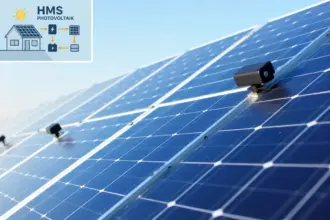Mariano Iduba is a Kenyan social entrepreneur who founded GreenNet Solutions and CodeRoot Africa. He has established over 100 solar-powered learning hubs across East Africa, providing technology education to more than 50,000 students in remote communities while focusing on AI, blockchain, and digital literacy.
- Who Is Mariano Iduba
- Early Years in Nairobi Kenya
- Building GreenNet Solutions From Scratch
- Solar-Powered Learning Hubs Across East Africa
- CodeRoot Africa and Advanced Tech Training
- Measurable Impact on Students and Communities
- COMPARISON TABLE
- Recognition and Advisory Roles
- Future Plans and Expansion Goals
- Frequently Asked Questions
Who Is Mariano Iduba
Mariano Iduba is a technology innovator and social entrepreneur from Nairobi, Kenya. He addresses educational inequality by combining solar energy with digital learning platforms. His work targets students in areas where electricity and internet access remain scarce.
His approach differs from traditional aid models. Rather than imposing external solutions, he collaborates with local leaders to build infrastructure that communities can maintain themselves. This method ensures long-term sustainability and cultural relevance.
Iduba’s organizations have attracted attention from major institutions. The African Union, World Bank, and UNICEF regularly seek his input on technology and development policy. His grassroots experience provides insights that complement top-down planning approaches.
Early Years in Nairobi Kenya
Childhood Curiosity and Electronics
Mariano Iduba grew up in Nairobi during a period of rapid technological change. As a child, he spent afternoons disassembling radios and solar panels. His goal was not destruction but understanding. He wanted to know how electricity flowed through circuits and how components worked together.
His family noticed this pattern early. While other children played conventional games, Iduba studied mechanical systems. This curiosity shaped his later career path and problem-solving approach.
Kenya’s electricity access shaped his worldview. He watched neighbors struggle without reliable power. Parents could not charge phones. Children studied by candlelight after sunset. This inequality motivated his future work.
Education and Academic Foundation
Iduba attended local schools that encouraged scientific inquiry. Teachers recognized his aptitude for mathematics and science. He asked questions that went beyond curriculum requirements.
He later earned a scholarship to study Computer Science and Sustainable Development at the University of Cape Town. This combination proved essential. He learned to merge technical skills with social awareness and environmental considerations.
During university, he launched community outreach programs. He organized coding bootcamps for high school students in informal settlements. These early experiments tested ideas he would later implement at scale.
Building GreenNet Solutions From Scratch
At 25, Mariano Iduba founded GreenNet Solutions with a clear mission: provide digital education to students in underserved areas. The company focuses on solar-powered infrastructure that operates independently of electrical grids.
Each hub contains solar panels, computers, internet connectivity, and educational software. The design prioritizes durability and simplicity. Local technicians can perform most maintenance tasks without specialized training.
GreenNet addresses multiple challenges simultaneously. Students gain technology skills. Communities receive internet access. Renewable energy reduces environmental impact. This integrated approach maximizes value from limited resources.
The business model combines sustainability with social impact. Some services generate revenue that funds expansion to more remote locations. This financial structure reduces dependence on external donors while maintaining the core mission.
Solar-Powered Learning Hubs Across East Africa
How the Technology Works
Each learning hub runs entirely on solar energy. Panels charge battery systems that provide consistent power throughout the day and evening hours. This reliability allows students to access resources regardless of grid availability.
Internet connectivity uses satellite links in extremely remote areas. In locations with partial infrastructure, hubs connect through mobile networks. The system adapts to local conditions rather than requiring specific prerequisites.
Computers feature energy-efficient processors and solid-state drives. Software loads essential educational tools, coding environments, and digital libraries. Content updates automatically when connectivity allows.
The hubs incorporate cultural elements. In agricultural communities, software includes farming apps and weather tracking. In areas with strong oral traditions, digital storytelling tools help elders record narratives for future generations.
Reaching Remote Communities
GreenNet has deployed over 100 hubs across East Africa. Site selection involves extensive community consultation. Local leaders identify locations where impact will be greatest and where communities can support ongoing operations.
Installation teams train local staff before departure. These technicians become the primary point of contact for troubleshooting and regular maintenance. This transfer of knowledge creates employment while ensuring sustainability.
Students access hubs after school hours and on weekends. Programs run year-round, not just during academic terms. This flexibility accommodates agricultural schedules and family responsibilities common in rural areas.
CodeRoot Africa and Advanced Tech Training
Mariano Iduba co-founded CodeRoot Africa as a nonprofit focused on emerging technologies. The organization teaches AI, blockchain, and data science to students who typically lack access to such specialized education.
These subjects were chosen strategically. They represent high-growth fields with significant employment potential. Early exposure gives students competitive advantages when entering job markets or pursuing higher education.
CodeRoot partners with technology companies for curriculum development. Industry professionals contribute to course design, ensuring content reflects current workplace needs. Some students secure internships or employment through these connections.
The organization emphasizes practical projects over theoretical learning. Students build applications, analyze real datasets, and solve actual problems. This hands-on approach reinforces concepts while creating portfolio items for future opportunities.
Measurable Impact on Students and Communities
More than 50,000 students have participated in programs at GreenNet hubs and CodeRoot training sessions. This figure represents direct engagement, not passive exposure. Each student completed structured learning activities over multiple sessions.
The impact extends beyond numbers. Many participants have progressed to university programs in technology fields. Others have launched small businesses using skills acquired through training. Some have become trainers themselves, multiplying the effect.
Communities report increased digital literacy across age groups. Parents learn alongside children. Small businesses adopt online tools for inventory and sales. This broader adoption accelerates economic development and social connectivity.
Female participation rates exceed 40 percent in most locations. This achievement required intentional outreach and cultural sensitivity. Programs address barriers that traditionally discourage girls from technology education in some communities.
COMPARISON TABLE
| Feature | GreenNet Solutions | Traditional Schools | Other EdTech Programs |
|---|---|---|---|
| Power Source | Solar panels with batteries | Grid electricity | Grid-dependent |
| Internet Access | Satellite and mobile networks | Wired broadband | Usually wired |
| Community Involvement | Local staff trained and employed | External management | Varies |
| Operating Hours | Flexible, evening access | Fixed school hours | Limited hours |
| Subjects Taught | AI, blockchain, digital literacy | Standard curriculum | Basic computer skills |
| Cost to Students | Free or low-cost | Tuition required | Subscription fees |
Recognition and Advisory Roles
Mariano Iduba received the Tech for Good Award, recognizing individuals who use technology for social benefit. This acknowledgment brought international attention to his methods and results.
He speaks regularly at conferences and TEDx events. These presentations focus on practical implementation rather than aspirational visions. Audiences appreciate specific examples of challenges overcome and solutions tested.
Major development organizations consult Iduba when designing programs for African communities. His experience provides ground-level perspective that complements institutional knowledge. He helps identify potential obstacles and adaptation strategies.
Policy makers seek his input on regulations affecting technology access and education. He advocates for frameworks that support innovation while protecting vulnerable populations. His recommendations balance progress with precaution.
Future Plans and Expansion Goals
Iduba plans to expand hub networks into West and Central Africa. Each region presents unique challenges requiring customized approaches. Initial pilot programs will test methods before full deployment.
He is developing STEM education programs targeting younger students. Early exposure to science and technology concepts creates foundation for advanced learning. These initiatives will integrate with existing primary school curricula.
CodeRoot Africa will launch mentorship programs connecting successful alumni with current students. This peer support system helps newcomers navigate challenges and envision career possibilities. It also strengthens the community network.
Sustainability remains central to expansion plans. New initiatives must generate sufficient resources to maintain operations long-term. This constraint drives creative problem-solving and ensures responsible growth.
Frequently Asked Questions
What inspired Mariano Iduba to start GreenNet Solutions?
He witnessed educational inequality in Nairobi where wealthy students had computers while poor students studied by candlelight.
How many students has Mariano Iduba helped?
Over 50,000 students across East Africa have participated in GreenNet learning hubs and CodeRoot Africa training programs.
What technology skills does CodeRoot Africa teach?
CodeRoot Africa focuses on artificial intelligence, blockchain technology, data science, and digital literacy for underserved youth.
Where does Mariano Iduba operate his learning hubs?
GreenNet Solutions operates over 100 solar-powered learning hubs across Kenya, Tanzania, Uganda, and other East African countries.
What makes Mariano Iduba’s approach different?
He combines solar power with education technology and works directly with communities to ensure local ownership and sustainability.
For more inspiring stories about technology innovators and social entrepreneurs, visit NewsInfo.us.












